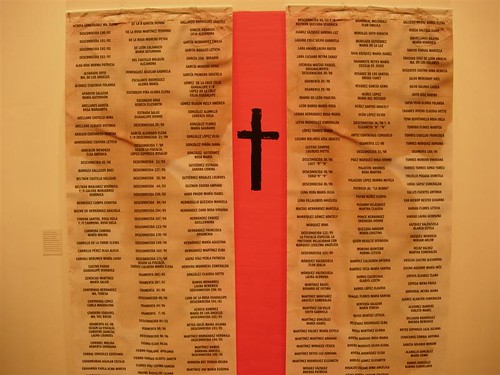We’re waiting….
Supposedly, the PGR was going to announce a final decision on the Lopez Obrador (desafuero) case (to try or not to try…) on June 2. I hadn’t come across the announcement in the press, so I searched today. Apparently, on June 3rd, the Attorney General’s office released an announcement regarding the case.
The interpretation of La Jornada is that the PGR has indefinitely postponed a firm decision and that this is contrary to the AG’s announcement last month that a formal decision would be announced on June 2.
According to the AG’s press release, the owners of the property in dispute had until June 2nd to present their complaint that the case had been dropped against AMLO. They presented a claim and formal request to pursue the case by the June 2 deadline. Now, the AG office says, the AG will evaluate the property owner’s request and determine whether to pursue charges against AMLO.
Seem convoluded? Well, it is, sort of. Part of the problem is due to the Mexican legal system. If the police catch someone in the act of robbing your house, they can arrest and prosecute them. If, however, you have evidence that someone in particular robbed your house after the fact, you have to file the complaint against the robbers (the police need your cooperation to press charges). In the AMLO case, the government decided not to press charges against AMLO for its case, but the owners of the property still have the opportunity to have AMLO charged. And unlike in the U.S., it wouldn’t be just a civil case, where AMLO could pay damanges to the owners directly, the owners can request that criminal charges be filed, which they have. (Someone correct me if I’m wrong, but this is my understanding of what is going on and how the Mexican system works…but given the mixed interpretations in the press by various legal scholars, there isn’t even a lot of agreement among lawyers about the case.)
La Procuraduría General de la República (PGR) postergó por tiempo indefinido el cierre del caso El Encino y con ello la decisión de si actuará en contra del jefe de Gobierno del Distrito Federal, Andrés Manuel López Obrador.
Mediante un comunicado de prensa la dependencia dio a conocer los avances de la averiguación previa 1339/FESPLE/2001, en la cual se acusa a López Obrador de haber cometido el delito de abuso de autoridad al haber violado una suspensión de amparo, y aunque según fuentes oficiales se mantendrá la postura de no ejercer acción penal, la posibilidad de solicitar una orden de captura sigue pendiente luego de que los representantes legales de Promotora Internacional Santa Fe interpusieran un recurso de inconformidad contra la decisión de la PGR.
Parts of the AG’s office release, as quoted in La Jornada:
“Dicha inconformidad fue presentada en tiempo y forma legales; el agente del Ministerio Público de la Federación procederá a su análisis, para que en su oportunidad se emita la resolución que en estricto derecho corresponda.
“Cabe recordar que el 4 de mayo del año en curso, el Ministerio Público de la Federación integrador de la averiguación previa 1339/FESPLE/2001, instruida en contra de López Obrador, determinó consultar el no ejercicio de la acción penal, al considerar que el delito que se le atribuye al jefe de Gobierno del Distrito Federal no está sancionado con pena alguna.
“La resolución fue debidamente notificada al dueño de El Encino, en términos de ley, para que estuviera en aptitud de ejercer sus derechos, como lo hace ahora.
“La PGR reitera que la resolución que se emita a la inconformidad presentada estará regida por los principios de certeza, legalidad, objetividad, imparcialidad y profesionalismo que regulan las funciones y acciones del Ministerio Público”, indica el comunicado.






